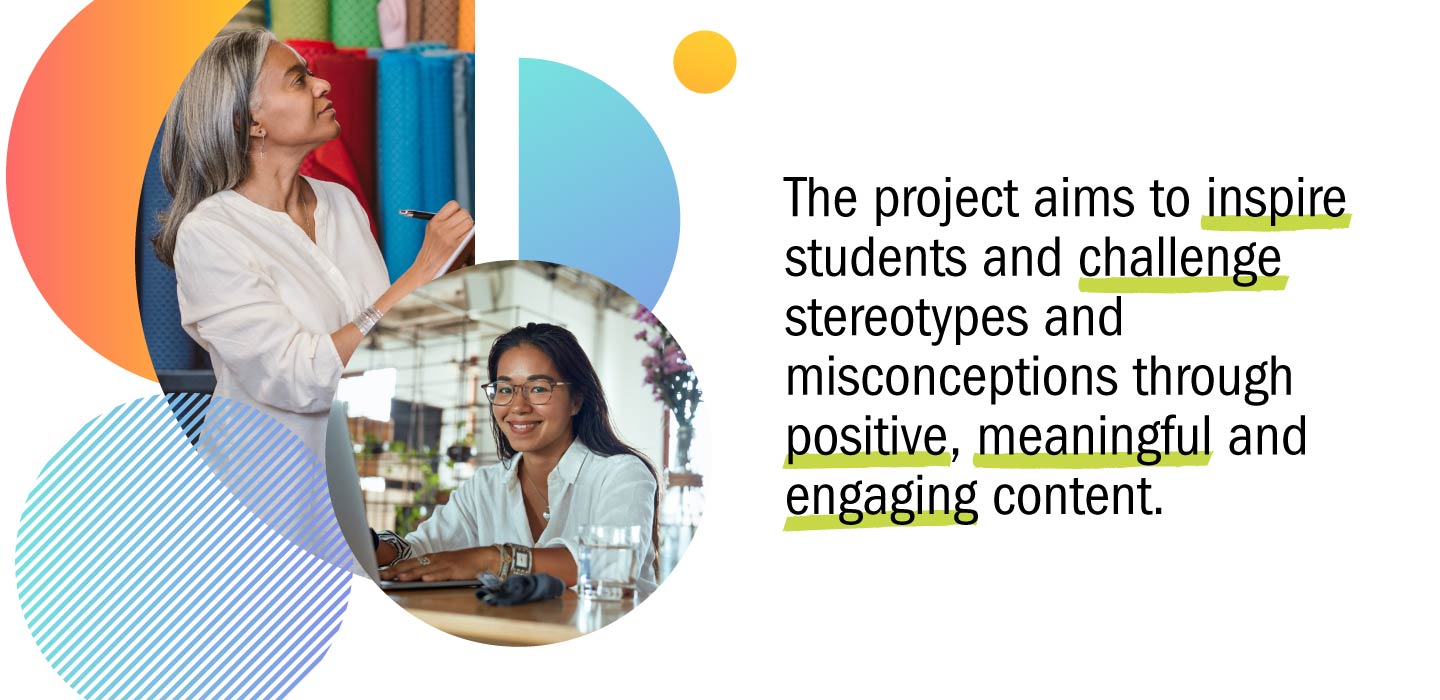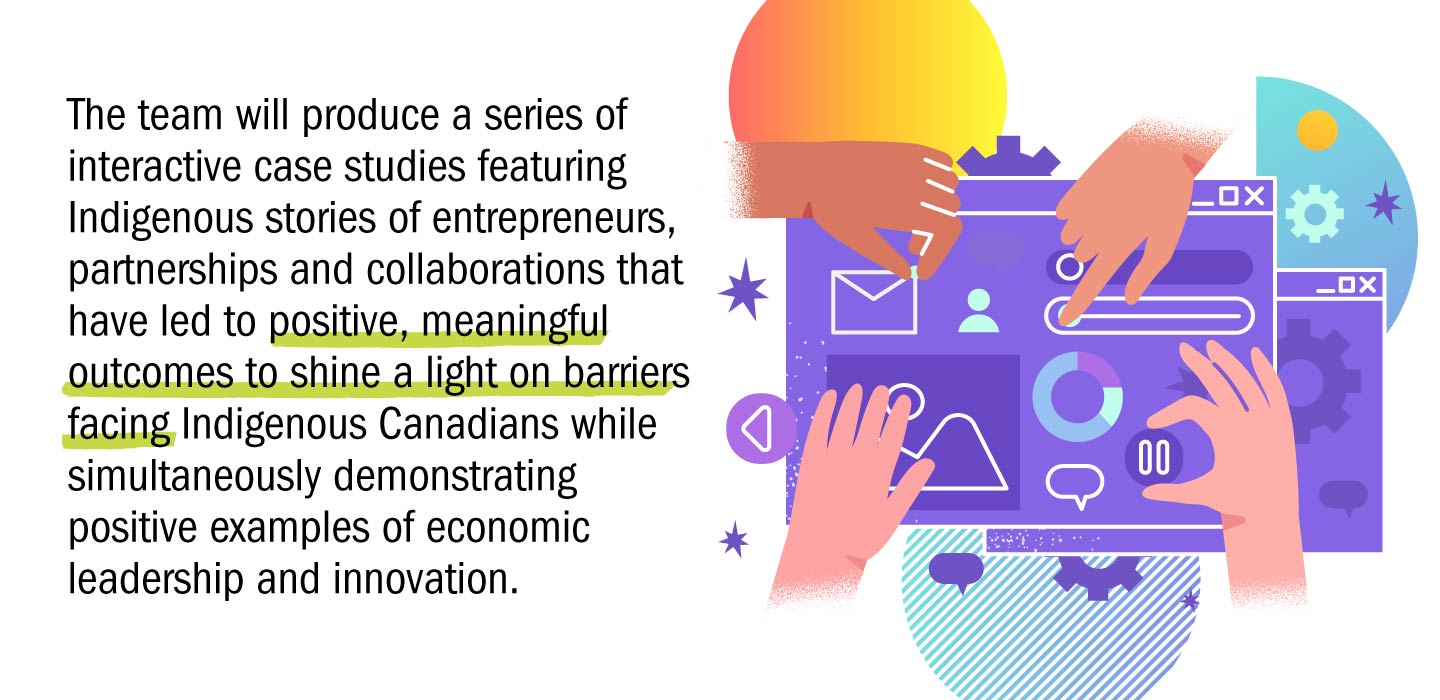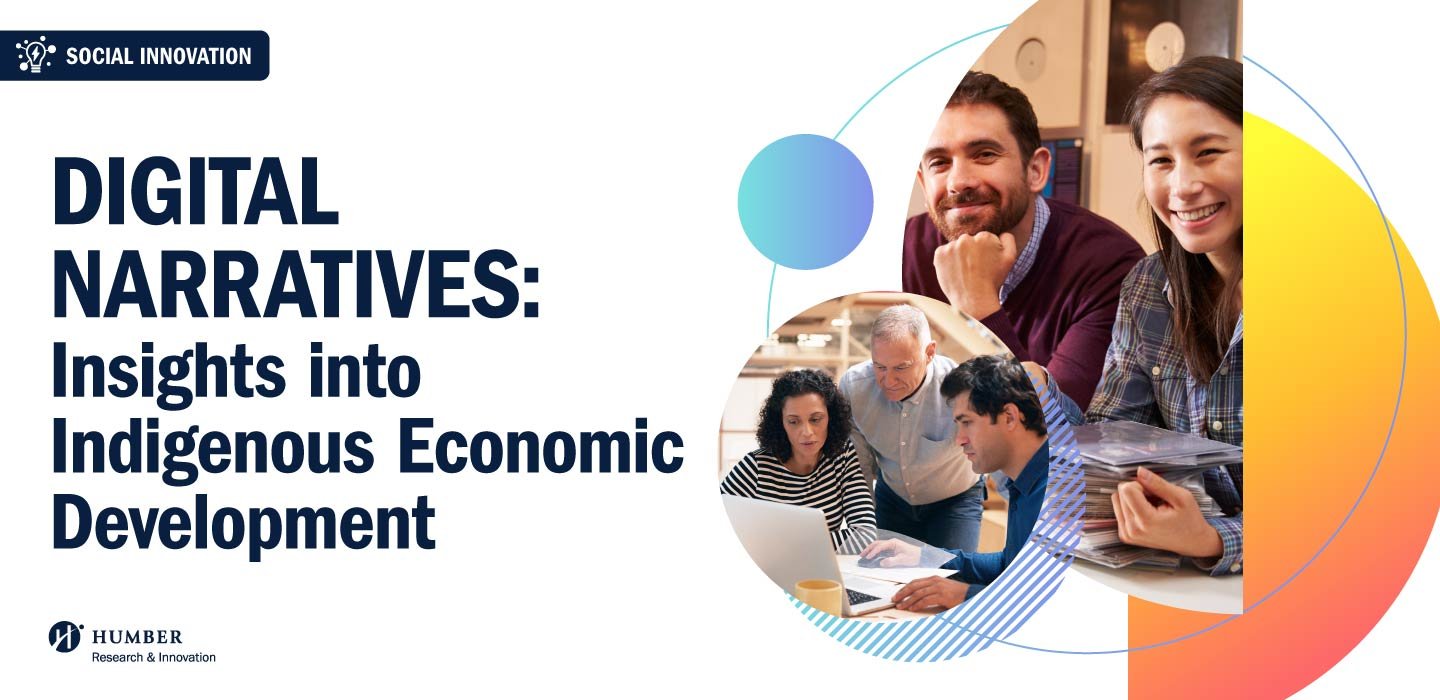Humber College is committed to transforming postsecondary education through three main pillars defined in its 2018-2023 Strategic Plan—developing career-ready citizens, providing accessible education and building a healthy and inclusive community. One of Humber’s key priorities in the pillar of accessible education is creating a culturally meaningful environment that recognizes the historical and current context of Indigenous peoples. As part of this commitment, Humber’s faculty members, researchers and scholars are continually engaging in research that seeks to integrate more Indigenous knowledge into the curriculum.
A prominent example of such a research project is Indsights: A Window into the Indigenous Economy led by Principal Investigator Audrey Wubbenhorst, professor in the Faculty of Media & Creative Arts at Humber. The research project addresses questions such as: How does Indigenous economic development challenge Western assumptions and colonization? What can be learned through examples of Indigenous economic development? What content can be created to meaningfully engage with Indigenous knowledge in the classroom?
The research team will write a number of case studies from across Canada reflecting the diversity of Indigenous communities. As the cases are completed, they will be made available on a website as open educational resources as well as disseminated and promoted through social media. In the final year of the project, the team is planning on organizing a formal event to share the content and explore ways of further integrating these stories into classrooms.
The project received a College and Community Social Innovation Fund (CCSIF) grant ($360k) from the Natural Sciences and Engineering Research Council of Canada (NSERC) in 2021.
Challenge
While the Truth and Reconciliation Commission called for more Indigenous content in Canadian classrooms, there is little available content for postsecondary professors to refer to and rely on.
Through collaboration with the Canadian Council for Aboriginal Business and the First Nations University of Canada, the research team aims to share many of the positive stories relating to Indigenous economic development, which exist but have been largely untold. As such, this project will support the Truth and Reconciliation Commission’s recommendation by:
- Developing new curriculum content so that Indigenous and non-Indigenous students have access to engaging business cases exemplifying role models and best practices in Indigenous economic development
- Supporting teachers and professors with current, inclusive content that is free and accessible
- Raising the profile of successful businesses representing the diverse Indigenous economy
- Underscoring the power of economic development in contributing to wider issues such as poverty alleviation, self-esteem and social purpose
Given the shortage of content in this area, the project will fill the current gap in business case literature for educators to use in their classrooms. The project aims to inspire students and challenge stereotypes and misconceptions through positive, meaningful and engaging content.

Project lead
The research project is led by Audrey Wubbenhorst. Audrey is a professor teaching public relations and digital communications at Humber College where she has received a number of research grants to research and write case studies on the impact of social media on businesses. She has also taught business case analysis courses in strategy and corporate social responsibility in the MBA programs at Ryerson University and McMaster University. Wubbenhorst has had broad exposure to many community partners and partnership models that have led to innovative change at the grassroots level. Wubbenhorst has an MA in Communications and an MBA.
When asked about the most valued benefit of conducting the research project, Audrey states:
“Every research project provides great content material to discuss and further study in class due to its relatability with students. It is amazing, as a college, to be able to deliver such research opportunities to students, which is not very common, in addition to providing them with employment prospects.” —Audrey Wubbenhorst
Community partners
The research team is led by Humber College with direct input from researchers at the Canadian Council for Aboriginal Business and First Nations University of Canada.
Founded in 1982, Canadian Council for Aboriginal Business (CCAB) is committed to the full participation of Indigenous Peoples in Canada’s economy. As a national, non-partisan business association with over 1200 members, CCAB offers knowledge, resources, and programs to its members to foster economic opportunities for Indigenous Peoples and businesses across Canada.
Student involvement
Research assistants currently participating in the project are Lisa Post and James Henebry. Over the course of three years, the research team is planning to involve a number of students who will be gaining hands-on experience conducting research while completing their studies.
Through participating in the project, the students will gain skills in video production, storytelling, writing and graphic design. The students will provide media support (filming, recording and editing) and lead the development of the project’s website and social media campaign to build interest in the project and measure the engagement of the content once it is posted.
In addition to developing their skillsets in the areas of research, analytics, and production, the students will also enhance their understanding of Indigenous issues and broaden their exposure to Indigenous communities.

Potential for impact
The research project has the potential for innovative impact on several fronts. The team will produce a series of interactive case studies featuring Indigenous stories of entrepreneurs, partnerships and collaborations that have led to positive, meaningful outcomes to shine a light on barriers facing Indigenous Canadians while simultaneously demonstrating positive examples of economic leadership and innovation.
According to the Indigenous Economic Progress Report, “Indigenous economic development and participation […] if addressed would boost Canada’s economy by $27.7 billion annually” (The National Indigenous Economic Development Board, 2019). Not only does Indigenous economic development benefit local communities and Indigenous people, but it also has significant potential to make a substantial contribution to the Canadian economy. The National Indigenous Economic Development Board has been tracking a wide variety of economic measures such as employment rates, income as well as high school, college and university completion. Through positive storytelling, this project aims to make an impact on these measures by showcasing role models and innovative business models. At the granular level, by providing Indigenous curriculum, the project team hopes to inspire the next generation of entrepreneurs and business people who will, in turn, create jobs and employment opportunities in their communities.
Learn more about ways to get involved in research projects taking place at Humber.

We acknowledge the support of the Natural Sciences and Engineering Research Council of Canada (NSERC). Nous remercions le Conseil de recherches en sciences naturelles et en génie du Canada (CRSNG) de son soutien.
References
Humber College. (2018). Lead, Transform, Differentiate: 2018-2023 Strategic Plan. https://humber.ca/strategic-plan/
The National Indigenous Economic Development Board. (2019). Indigenous Economic Progress Report. http://www.naedb-cndea.com/en/2019-indigenous-economic-progress-report/
